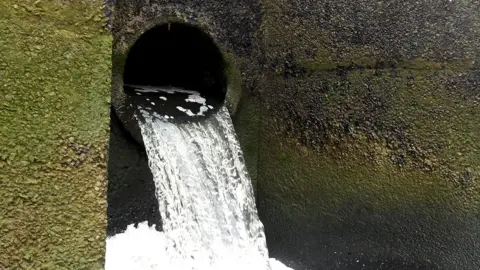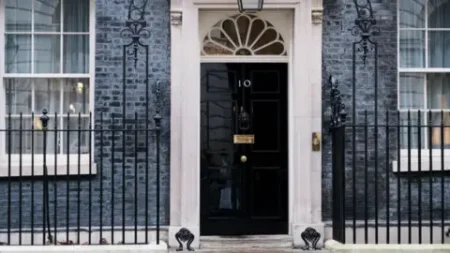The water sector in England and Wales has long been a topic of public concern, especially regarding issues such as sewage spills and rising water bills. Recently, a comprehensive review conducted by an independent Water Commission, chaired by Sir Jon Cunliffe, a former deputy governor of the Bank of England, shed light on these challenges. The resulting report is 465 pages long and provides several key recommendations aimed at reforming the sector. Below are the five main takeaways from this landmark review, outlining the critical issues that have been highlighted.
**Responsibility and Accountability: Regulatory Changes Ahead**
The review lays significant blame on multiple stakeholders: the government, water companies, and regulatory bodies alike. Sir Jon emphasized that no one emerges from this situation with pride, stating, “We have not managed this well.” The commission pinpointed regulatory bodies—particularly Ofwat, the current economic regulator—as needing substantial reform due to their inability to effectively oversee water companies. One of the most eye-catching recommendations includes eliminating Ofwat in favor of establishing a unified regulatory body that would oversee water management across both England and Wales. This change aims to streamline accountability and better serve the interests of consumers and environmental sustainability.
**Self-Monitoring: A Flawed System**
Another critical aspect of the review addresses the self-monitoring practices adopted by water companies. As public scrutiny over sewage spills increases, it has become clear that relying on companies to inform regulators about their own pollution incidents is a flawed approach, often described by critics as “marking their own homework.” Although the report does not propose transferring all monitoring responsibility to regulators, it advocates for a comprehensive overhaul of self-monitoring systems. Enhanced technology, more rigorous inspections, and third-party reviews are recommended to ensure that water companies are held to stringent standards and that environmental protection is prioritized.
**Ownership and Accountability: A Call for New Oversight**
The review also raises questions about the ownership structure of water companies, advocating for greater oversight of company finances and more stringent accountability measures for senior executives. Interestingly, while it acknowledges the need for reforms to attract long-term investors and ensure healthy financial practices in the sector, it stops short of endorsing nationalization. Environmental groups have criticized this stance, asserting that fundamental improvements to the industry cannot happen without placing water utilities under public control. Sir Jon maintains that the current privatized system could work if better regulated, reflecting the complexities of this debate.
**Future Cost Implications: Rising Bills on the Horizon**
One of the stark revelations from the review is the anticipated increase in water bills. Sir Jon explained that decades of underinvestment, compounded by pressures like climate change and a growing population, have left the sector in a vulnerable position. In 2023, regulators approved significant hikes in average water bills, with an increase of 26% projected between 2024 and 2026. Sir Jon warned that the consequences of neglecting maintenance and improvement would eventually necessitate steep investments, resulting in financial burdens for consumers. To mitigate the impact on low-income households, the report suggests implementing a “national social tariff” in England and reviewing existing social tariffs in Wales.
**Long-Term Commitment: No Quick Fixes**
Lastly, the review stresses that there are no “quick fixes” to resolve the ongoing issues within the water sector. While Environment Secretary Steve Reed has framed this review as an opportunity for substantial reform, Sir Jon cautioned against expecting immediate results. The development of new infrastructure and effective regulatory systems will take time to implement. His closing remark highlights that rebuilding trust will be a long-term endeavor, and ultimately, the government must decide which recommendations to adopt. Currently, while there are plans to abolish Ofwat and accept four initial recommendations, there remains a total of 83 recommendations pending consideration.
In conclusion, the comprehensive review serves as a crucial moment for stakeholders in the water sector. With extensive recommendations calling for better governance, accountability, and a focus on public interest, the future of water management in England and Wales hangs in the balance. The effectiveness of forthcoming reforms will depend significantly on the will of the government and the regulatory bodies to implement meaningful changes.










